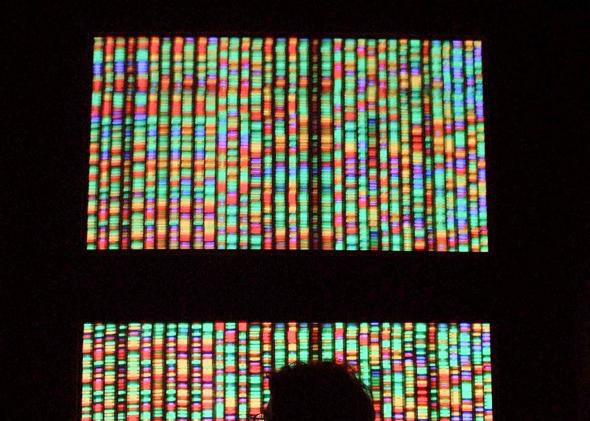23andMe, the company that offers personalized genetic reports from a spit swab for $99, has had its ups and downs. It had to stop providing health-related reports to customers after the FDA called its product out as an unapproved medical device. And questions have always swirled about its business plan. Would selling $100 spit swabs be enough to generate real revenue?
Apparently not, because 23andMe now has a $60 million contract with biotech company Genentech to provide aggregate genetic data for Parkinson’s research. Forbes reports that 23andMe has a total of 10 such deals in the works. Genentech will pay $10 million right away and up to $50 million as the project progresses.
It’s a bold move, but not exactly surprising. When 23andMe officially launched in November 2007, VentureBeat wrote, “To put it bluntly, the real money is likely to lie in selling corporations—specifically, drug companies—access to the aggregate genetic information 23andMe amasses from its customers.” In the era of big data, it would be, frankly, strange to sit on a mountain of valuable genetic information and look at it only internally.
Company co-founder Anne Wojcicki told VB at the company’s launch that “it’s really too early to specify how we might monetize and derive value from the information we’re aggregating. We’ve thought about a lot of different ways to monetize it, but we’re not ready to talk about them.”
23andMe customers can sign a consent form if they want to agree to make their data available for potential third-party use. Wojcicki has said that about 85 percent to 90 percent of customers sign the form. But as Sarah Zhang at Gizmodo points out, “While Wojcicki has been open about her larger ambitions for 23andMe, none of that language is apparent in the marketing for its DNA test kits to customers—for sneaky but obvious reasons.”
As with any type of for-profit service that collects personal data, there are pros and cons to participating. One pro is receiving what is essentially subsidized access to services like genetic testing that might otherwise be out of reach. The data is presumably more valuable to the company in the long term than the cost of discounting a spit swab test.
23andMe seems to be making its databases available for scientific research, which feels pretty comfortable and even laudable. But at eight years old, the company doesn’t exactly have an extensive track record. I reached out to 23andMe for information about any bioethical or institutional review mechanisms it may have, but the company hasn’t responded yet. It writes on its consent information page, “There is a very small chance that someone with access to the research data or results could expose personal information about you. 23andMe has policies and practices in place to minimize the chance of such an event.”
If 23andMe has your genetic data, it’s selling a big part of you.
Update, Jan. 7 11 p.m.: A 23andMe spokesperson wrote in an email that, “All research programs at 23andMe are overseen by a fully external and independent Institutional Review Board (IRB) through Ethical and Independent Review Services … Privacy and protection of an individual’s rights are of utmost importance to 23andMe.”
The company explains that it dissociates identifying customer details from genetic information and stores the two types of data on separate servers. For the Genentech project specifically, participants will sign an additional consent form. The spokesperson said that, on average, 23andMe customers who consent to have their data used in research end up being a part of more than 230 studies. Which, wow.
